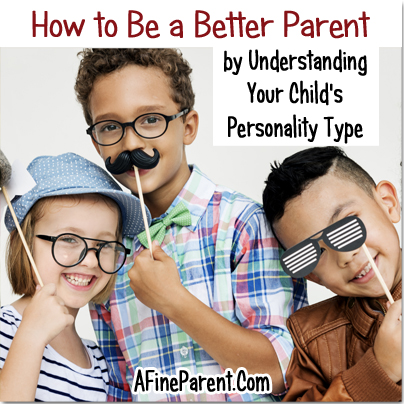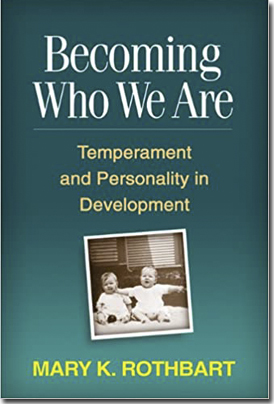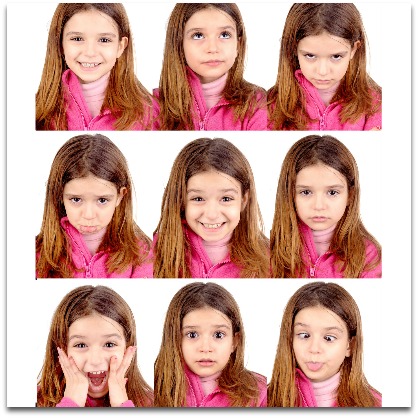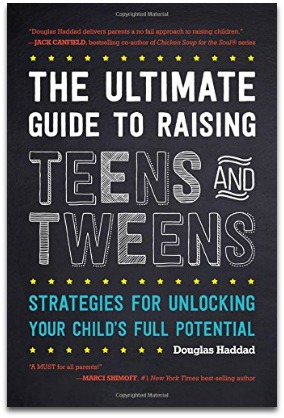 As a middle school teacher of 20 years, I have observed a variety of personality differences among my students. In designing my lessons, I take into account how a child’s personality type can influence their learning style, and I’ve found there can be big differences.
As a middle school teacher of 20 years, I have observed a variety of personality differences among my students. In designing my lessons, I take into account how a child’s personality type can influence their learning style, and I’ve found there can be big differences.
For instance, my students play a game before each unit test.
The purpose of this game is two-fold. One, it serves as a review of the major concepts studied in that unit. Two, it involves a way for students to engage in a friendly, competitive game, in which the winning team receives bonus points on their exam.
I created this game several years back, and it became a hit that many students looked forward to playing when they came into class. However, I noticed that some students found it to be incredibly stressful and anxiety provoking.
The game involves speed and accuracy and is a great outlet for those students who dedicate their time to studying and enjoy the thrill of competition. On the other hand, this game doesn’t necessarily spark the same motivation for students whose personalities are more laid back, who haven’t put in much time into reviewing for the test and/or who are less concerned with time constraints and winning.
The same game — with the same rules, asking the same questions, under the same time restrictions — can provoke a vastly different response for young people with different personality types. Let’s take a look at why this might be.
Parenting and Your Child’s Personality Type
 Environmental influences can have a significant impact on a child’s personality development, and this in turn has a direct effect on a child’s self-concept (perception of him/herself). In the book Becoming Who We Are: Temperament and Personality in Development, the author Mary Rothbart states that although temperament is biologically based, it also interacts with the influence of experience from the moment of birth (if not before) to shape personality.
Environmental influences can have a significant impact on a child’s personality development, and this in turn has a direct effect on a child’s self-concept (perception of him/herself). In the book Becoming Who We Are: Temperament and Personality in Development, the author Mary Rothbart states that although temperament is biologically based, it also interacts with the influence of experience from the moment of birth (if not before) to shape personality.
According to the National Institute of Mental Health, today’s teens are more anxious and depressed than ever before. One in ten experience a major depressive episode with severe impairment. A 2019 Center for Disease Control (CDC) report showed that the suicide rate rose 31 percent between 2007 and 2017, making it the second leading cause of death among individuals between 10 and 34.
The root cause of this staggering number of children taking their own lives is unclear. However, we see that today’s kids are immersed in social media, smartphones and various online activities. These activities often perpetuate acts of bullying, which result in isolation, loneliness and a lack of personal connection and sense of community.
Why do I tell you all of this? Because it is a reality for today’s youth. Parents are overwhelmed and oftentimes unsure of what to say, when to say it and how to say it with their kids.
As parents, we wish to have a long-lasting, positive impact to help guide our children down the safest and most rewarding path possible. But parenting is challenging — especially these days. Getting it “right” with our children isn’t always clear cut, and there are so many sources vying for their attention.
Wouldn’t it be great if there were a manual with specific formulas for successfully raising children? If that were the case, we could assume that we would see positive outcomes such as:
- less suicide and depression,
- increased self-esteem,
- healthy relationships and a greater feeling of belongingness,
- healthy eating and sleeping habits,
- more physical activity and less screen time,
- higher academic achievement and
- participation in more activities both in and out of school.
However, back to reality! A one-size-fits-all approach just doesn’t exist. We must be aware that paying too little attention or being overprotective may have different impacts on different children, based on our child’s personality type and unique attributes.
So what can we do to achieve such positive outcomes with our children, and where do we begin?
An Understanding of Your Child’s Personality
 Personality development emerges through a complex interaction between cognitive, biological, emotional and social factors. These attributes determine a child’s view of him/herself and the social world.
Personality development emerges through a complex interaction between cognitive, biological, emotional and social factors. These attributes determine a child’s view of him/herself and the social world.
Interestingly, two children raised by the same parents in the same environment can have very different perceptions of their childhood experiences. This can be attributed to the fact that each child has a set of unique “inherent behavior traits.”
Depending on these unique traits, children elicit different responses from the same environment. For instance, children who are more of what you would call a Type A personality are characterized by being highly intense and competitive — with a need to win and be the best. These children often require structure and would benefit from healthy competitive outlets. They are the students who do well with the game I mentioned at the beginning of this article.
On the other hand, children with a Type B personality are often characterized as easy-going, mild-mannered and flexible, and they often participate in games for fun — rather than to win. These children might prefer opportunities for creative outlets over competition and might excel in group settings, rather than competitive individual ones.
Different Personality Types
 The Personality Type system was originally devised by Swiss psychotherapist and psychiatrist Carl Jung and was later expanded by the American mother-daughter team of Katharine Cook Briggs and her daughter, Isabel Briggs Myers, who extensively studied Jung’s work and developed the Myers-Briggs Type Indicator (MBTI).
The Personality Type system was originally devised by Swiss psychotherapist and psychiatrist Carl Jung and was later expanded by the American mother-daughter team of Katharine Cook Briggs and her daughter, Isabel Briggs Myers, who extensively studied Jung’s work and developed the Myers-Briggs Type Indicator (MBTI).
This system categorized sixteen possible psychological types based on four opposite pairs:
- Extraversion vs. Introversion (two opposing ways that show how people are interested in the world around them)
- Sensing vs. Intuition (two opposing ways that show how people take in information about the world)
- Thinking vs. Feeling (two opposing ways that show how people evaluate information and view the world)
- Judgment vs. Perception (how people organize the world around them)
According to the MBTI, people “truly” possess either one or the other component in each of the four different categories. They can possess the opposing component as well, but the difference lies in the natural, innate preference for one trait from birth. When someone also possesses the opposing component, this is a trait they have acquired and learned over time.
The Power of Words
 The power of word choice becomes paramount with influencing a child’s perception and action. For example, how we, as parents, speak to our children about everything from eating to grooming themselves can have a profound impact on their development.
The power of word choice becomes paramount with influencing a child’s perception and action. For example, how we, as parents, speak to our children about everything from eating to grooming themselves can have a profound impact on their development.
According to Medical Daily, Stanford University psychologist Carol Dweck has spent decades researching the human psyche. She discovered that parents who focus on the “intellect and talent” of their children over the “effort and overall process” can cause their children to develop fear of failure and reticence to seek out challenges, accompanied by an unwillingness and lack of motivation to learn new things.
Each one of us has specific things that can trigger us when we are in a bad mood. However, let’s look at two polar opposite personality examples to see how the words spoken can affect them differently.
ESTJ (Extroverted, Sensing, Thinking, Judging) boys and INFP (Introverted, Intuitive, Feeling, Perceiving) girls receive reinforced, positive messages from society supporting their “masculinity” and “femininity,” respectively.
On the other hand, ESTJ girls often receive strong messages from society that they should be less assertive and gentler and tone down their self-confidence. If you have an ESTJ girl, it is important to provide support and reframe her behavior as something positive. If someone labels her “bossy,” perhaps you could offer “assertive” as an alternative. Leadership qualities in girls are just as important as they are in boys. This will help your daughter retain her natural self-esteem in the face of society’s expectations.
Meanwhile, INFP boys often receive the message that their innate characteristics are not accepted within what is considered “masculine” in our society. They might be called “girlie,” which cuts both boys and girls down.
 The Myers Briggs (MBTI) system can be, nonetheless, a good predictor of how your child will use their inborn traits to view the world, deal with different life experiences and react to various situations. Recognizing these natural preferences in your children, early on, will help provide you with great insight into their thoughts.
The Myers Briggs (MBTI) system can be, nonetheless, a good predictor of how your child will use their inborn traits to view the world, deal with different life experiences and react to various situations. Recognizing these natural preferences in your children, early on, will help provide you with great insight into their thoughts.
Young children may be small, but their personalities are already manifesting. Your child’s unique personality profile typically starts to show up by two or three years old, and becomes evident by five years old. By the time they are tweens and teens, you are likely to see distinct personality patterns that can help you predict their reactions to different situations and tailor your parenting style to best match your child’s needs.
A more in-depth discussion on the different personality types are discussed in my book The Ultimate Guide to Raising Teens and Tweens: Strategies for Unlocking Your Child’s Full Potential.
Different Parenting Styles
 Personality has a big impact on parent-child relationships, but parenting style also has a lot of influence on the development of your child’s personality. It can further develop your child’s personality by matching or opposing his or her innate characteristics.
Personality has a big impact on parent-child relationships, but parenting style also has a lot of influence on the development of your child’s personality. It can further develop your child’s personality by matching or opposing his or her innate characteristics.
Parenting style has been found to predict a child’s well-being in the following domains:
- Social competence,
- Academic performance,
- Psychosocial development and
- Problem behavior.
Two important elements include parental responsiveness and parental demandingness.
Parental responsiveness involves providing love, warmth and support, and fostering a sense of individuality in your child.
Parental demandingness involves the type of discipline that is used and the demands or expectations for responsible behavior.
There are four main parenting styles that are currently observed today:
- Authoritarian — high parental demandingness, low or no parental responsiveness; a highly controlling, strict form of parenting that expects children to adhere to rules and expectations; children have little or no input into family decisions
- Permissive — low or no parental demandingness, high parental responsiveness; doesn’t exert much control, where parents are generally relaxed and accepting of their children’s behavior, good or bad
- Authoritative — high parental demandingness, high parental responsiveness; equal level of providing strict discipline and expressing love, warmth and affection; recommended as the most beneficial parental style
- Unresponsive — low or no parental demandingness, low or no parental responsiveness; the parent is uninvolved in disciplinary actions and detached emotionally, not expressing love and affection to the child; the least beneficial parenting style
The Ideal Parenting Style
 How do a parent’s personality traits influence their parenting style? Research conducted on the effect of personality on parenting style has found that there are connections between your own personality and how you parent your children.
How do a parent’s personality traits influence their parenting style? Research conducted on the effect of personality on parenting style has found that there are connections between your own personality and how you parent your children.
Overall, however, it is best to strive for an authoritative parenting style. Although specific differences are evident among each parenting style, studies have found the greatest disparities between children from authoritative homes and their peers whose parents are unresponsive.
Based on child reports, parent observations, and parent interviews, the benefits of authoritative parenting — where there is an equal level of parental responsiveness and demandingness — have been demonstrated as early as preschool, continuing throughout adolescence and into early adulthood. Authoritative parenting predicts good psychosocial outcomes, higher academic achievement and less problem behaviors.
But what is the secret to achieving this state of parenting utopia? Where do you begin? Based on my experience in working with over 2,400 students and their parents for the past 20 years, I have developed a three-step strategy that has served as a highly effective technique to becoming an authoritative parent. In theory, it is simple to understand. Yet, it requires practice, patience and listening in order to see results.
I have successfully applied this technique to my tween and teenage students for the past two decades, and it has helped in a multitude of scenarios, including building rapport, resolving conflicts, de-escalating crises and helping children reflect on their actions.
It is undoubtedly the key that has opened the door for more effective communication with my students, and I believe will do the same for you and your children.
Introducing the R.E.V. technique:
- R = reflective listening and responding
- E = empathy
- V = validation
How does the R.E.V. method of parenting work in practice?
It first comes down to the basic principle of allowing your child to express his or her ideas and listening without judgment. If your child is showing that he or she is upset and says something like, “I am mad,” or “That’s not fair that I can’t do that,” or “Why can’t I have this game?” start with the “R” part of this technique.
Reflective Listening and Response: Simply respond to your child by re-stating what was expressed. Here are some examples:
“From what you are saying, I can see that you seem quite upset that…”
“I can see that you feel that not being allowed to go to your friend’s house to play today is unfair.”
“You seem to be wondering why you can’t have this game.”
 Empathy: Follow up your reflective response by showing that you understand your child’s feelings in the situation:
Empathy: Follow up your reflective response by showing that you understand your child’s feelings in the situation:
“If I were in your shoes, I would feel the same way.”
“I can only imagine how that must have felt…”
“These things sometimes happen, and I completely understand…”
Validation: Follow up your empathy response by showing that your child’s voice is heard and then imparting the lesson that you’d like them to take away.
“This is a lesson that we all learn at some point in our lives, and next time I’m sure you will make the right decision.”
“If I were in your shoes, I can understand why you would feel that way. However, you making the right decisions is the most important, and I know you will make a wise choice next time.”
“Looking at it from your point-of-view, I can see why you would feel that way. Now that you see actions have consequences, I have complete faith that you will make a better decision if you are ever put in that situation again.
The R.E.V. method helps strengthen the bond between you and your children. It reassures them that they can voice their concerns to a caring and trusted adult for emotional support and understanding.
I’ve found that this technique helps open the lines of communication between parent and child. Ultimately, it allows parents to impart positive, genuine, impactful and long-lasting messages to their children.
The 2-Minute Action Plan for Fine Parents
For our quick action today, try asking these questions to yourself:
- How would you describe the connection that you have with your children?
- How would you describe your child’s personality?
- What is your personality type, and how can you use that to complement your child’s personality to reinforce and encourage positive behavior?
- How would you describe your parenting style? Has that been proven effective in building a strong, connected relationship with your child, or are there things you would like to change about your parenting style?
The Ongoing Action Plan for Fine Parents
As you come to better understand your personality, your child’s personality and your parenting style, dig deeper to better connect with your child and ensure better outcomes for both of you:
- Over the next week, take an introspective look at your own view of the world, and identify your specific strengths and weaknesses. See how they affect the relationship you currently have with your children.
- In the coming months, use this knowledge to adjust your parenting style and shed light on dealing with your child’s unique personality, developmental stage and the challenges that lie ahead.
- Take time each day to engage with your child. For instance, play a game or do some activity together as a family. The more opportunities you have to play with your child, the more opportunities you have to engage in meaningful conversations. Kids are more willing to listen to their parents when they know that their parents listen to them and are interested in what they are doing.
Leave a Reply